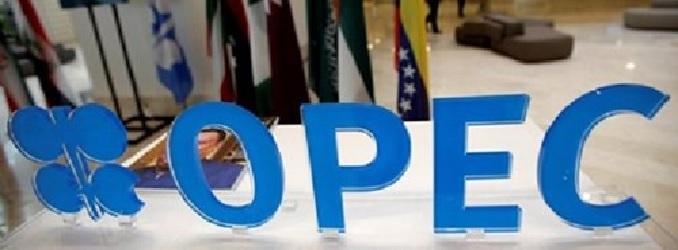(Bloomberg) – OPEC+ will increase oil production even more rapidly than expected next month, as the group led by Saudi Arabia seeks to capitalize on strong summer demand in its move to reclaim market share.

Eight key alliance members agreed to raise supply by 548,000 bpd at a video conference on Saturday, putting the group on pace to unwind its most recent layer of output cuts one year earlier than originally outlined. The countries had announced increases of 411,000 bbls for each of May, June and July — already three times faster than scheduled — and traders had expected the same amount for August.
The latest increase amplifies a dramatic strategy pivot by the Organization of the Petroleum Exporting Countries and its partners that has weighed on oil prices this year. Since April, the group has shifted from years of output restraint to reopening the taps, surprising crude traders and raising questions about its long-term strategy.
Saturday’s decision was based on “a steady global economic outlook and current healthy market fundamentals, as reflected in the low oil inventories,” OPEC’s Vienna-based secretariat said in a statement.
The cartel will consider adding another roughly 548,000 bpd in September at the next meeting on Aug. 3, according to delegates who asked not to be identified, which would complete the revival of 2.2 million barrels a day of supply shuttered in 2023. After that, the group has another 1.66 million-barrel tier of idle output to potentially consider.
OPEC+ is pushing barrels into a market that is widely expected to be oversupplied later in the year. Brent oil futures have retreated 8.5% in 2025 as crude production rises both across the alliance and globally, while the threat to economic growth from President Trump’s trade war has cast a shadow on future demand.
Still, oil fundamentals look more robust in the immediate term, and some delegates said the group is accelerating supply increases in part to take advantage of stronger demand during the northern hemisphere summer. Refiners in the U.S. are churning through the most crude for the time of year since 2019, and prices for some fuels like diesel have soared.
Some OPEC+ delegates have offered other explanations for the strategy reversal, such as punishing the group’s over-producing members and regaining sales volumes ceded to rivals like U.S. shale drillers. Officials have said that Riyadh is especially eager to restart more idled capacity as quickly as possible in a drive for market share.

